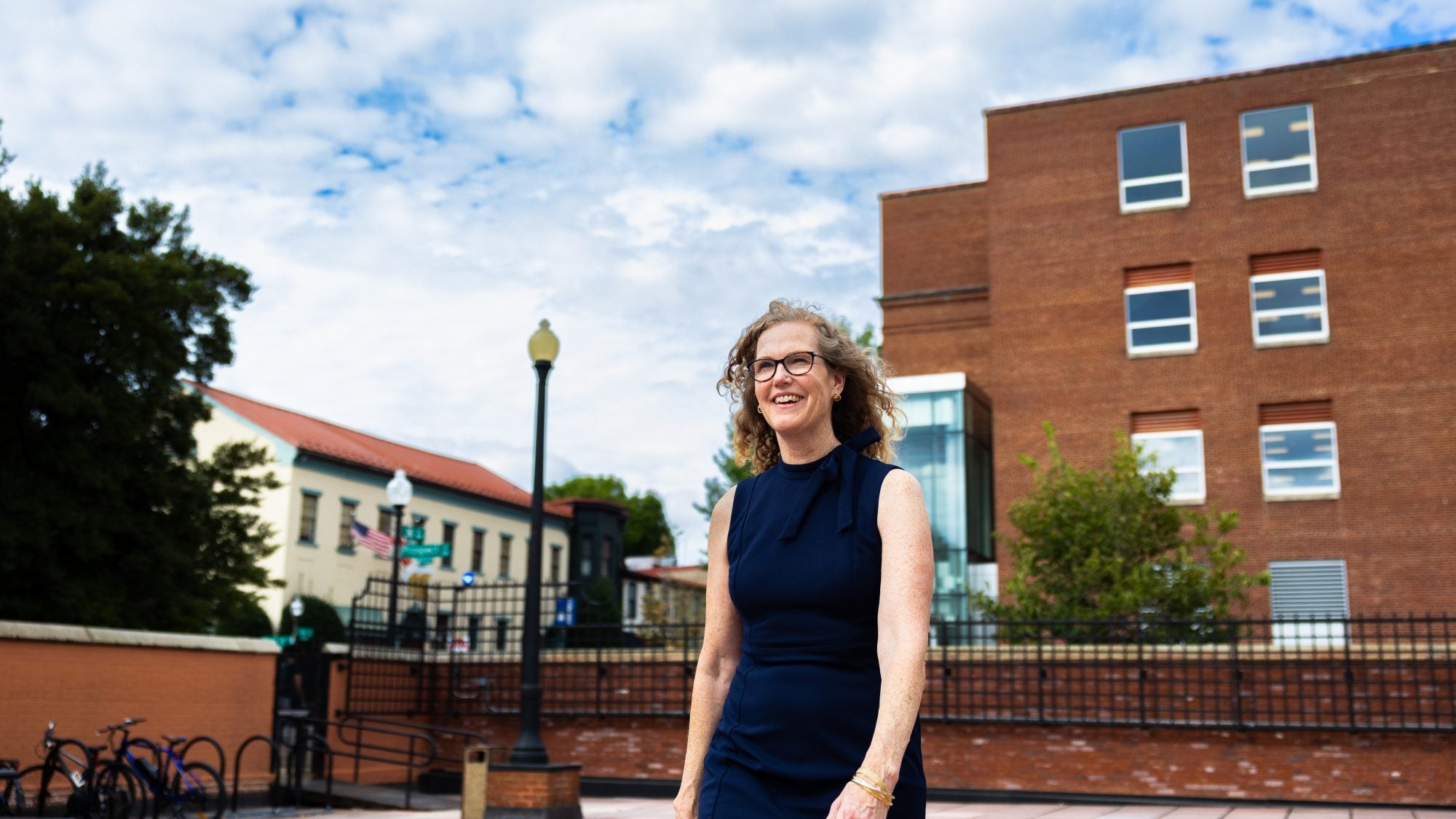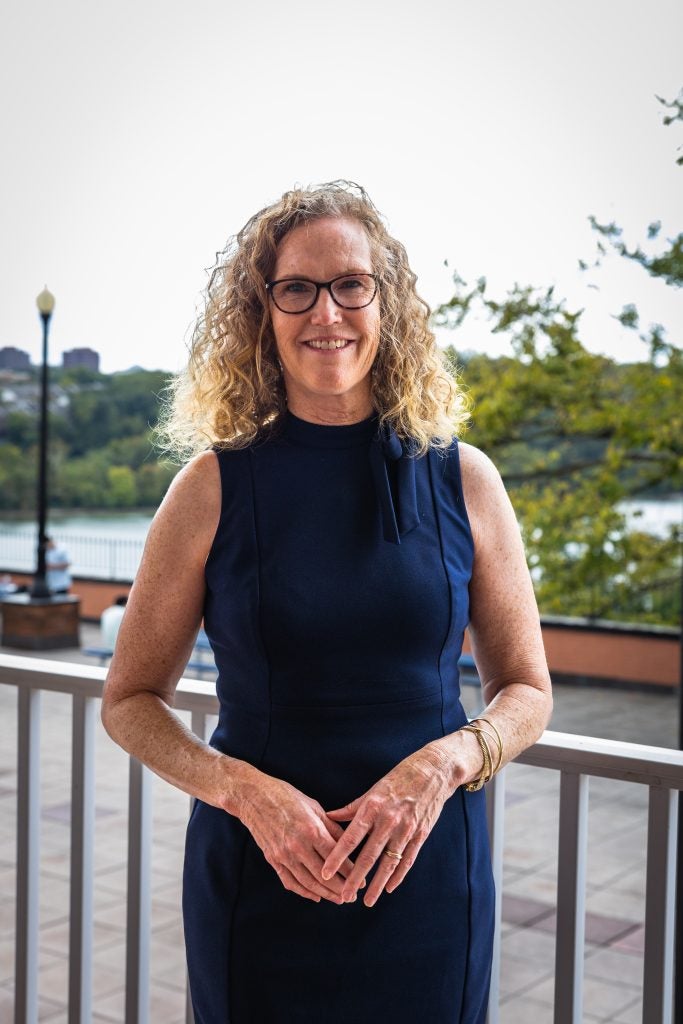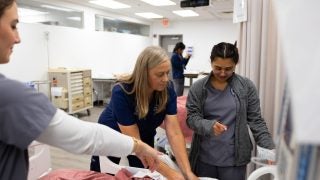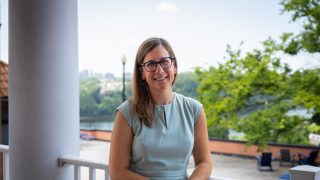This story is part of Georgetown Faces, a storytelling series that celebrates the beloved figures, unsung heroes and dedicated Hoyas who make our campus special.
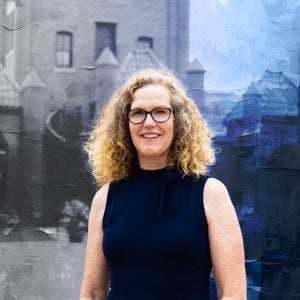
Across a large whiteboard in Kelly Grady’s office in the Car Barn, next to to-dos, program diagrams and thank-you notes, a carefully written quote asks: “What is our social contract with graduate students?”
For Grady, associate director of interdisciplinary programs at the Joint Office of Graduate Studies, this question guides how she plans, debuts and supports innovative grad programs in collaboration with faculty and staff across Georgetown’s schools.
“What are we doing to support students’ career development in our programs, and does what we’re teaching help them bridge their learning to grow new skills?” Grady said. “I’m trying to engage as many people as possible in that conversation.”
Grady oversees 10 interdisciplinary programs in the Joint Office of Graduate Studies, the central support office for Georgetown graduate programs that emerged from the Graduate School of Arts & Sciences’ restructuring in summer 2025. Her main goal is for graduate students enrolled in these programs to be satisfied with their Georgetown education. From program development to management, she partners with faculty and staff to meet students’ needs in- and outside the classroom — called curricular and co-curricular learning within academia.
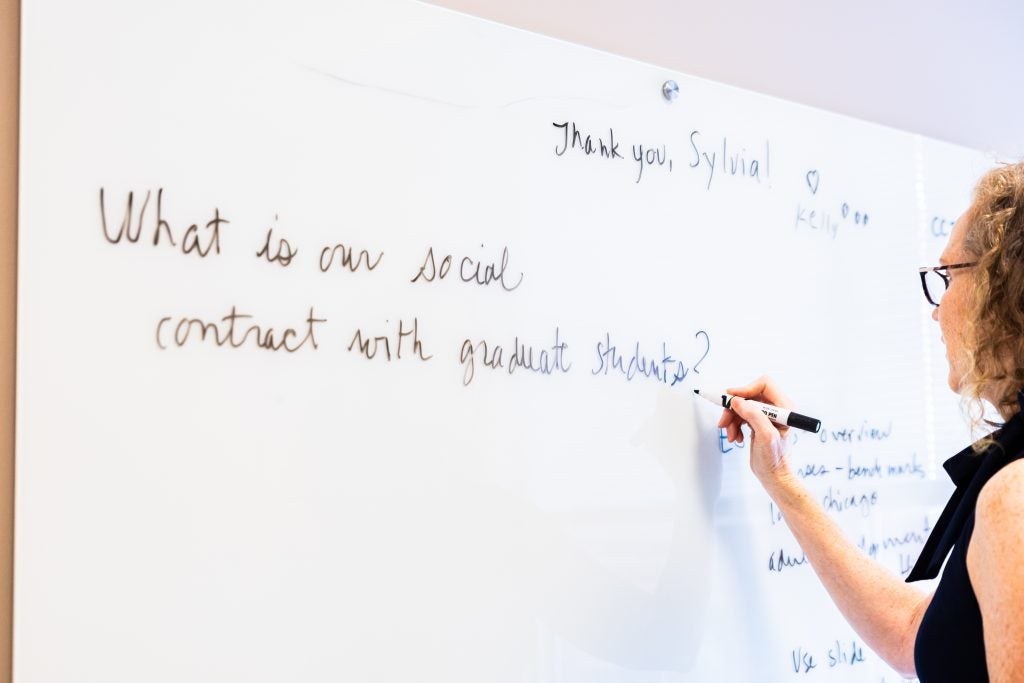
The Philadelphia native was drawn to higher education while attending the University of Maryland. A self-described “distracted student,” Grady realized she was learning more from the co-curricular environment of college, including internships, student organizations and events, than she was getting out of her coursework as a psychology major.
Grady wanted to encourage fellow students to explore these opportunities and became an orientation leader as an undergrad. After graduating in 1989, she worked in residential living offices at Indiana University of Pennsylvania and The College of New Jersey, specializing in helping students transition to college.
Far from her distracted student days, Grady threw herself into learning about learning. She earned a Doctorate of Education from the University of Pennsylvania while raising three children. She also holds a Master of Education from the University of Vermont.
Grady joined Georgetown in 2012 as an assistant dean of graduate academic affairs for what was then called the School of Nursing & Health Studies, where she mainly worked with students in the midwifery and women’s health programs. In 2021, she moved to the Graduate School of Arts & Sciences, now the Joint Office of Graduate Studies, in her current position.
And she’s still on a roll. This fall, Grady is helping develop the Emerging Studies Institute, Georgetown’s forthcoming incubator for interdisciplinary programs.
Get to know Grady and learn how the Georgetown community inspires her personally and professionally.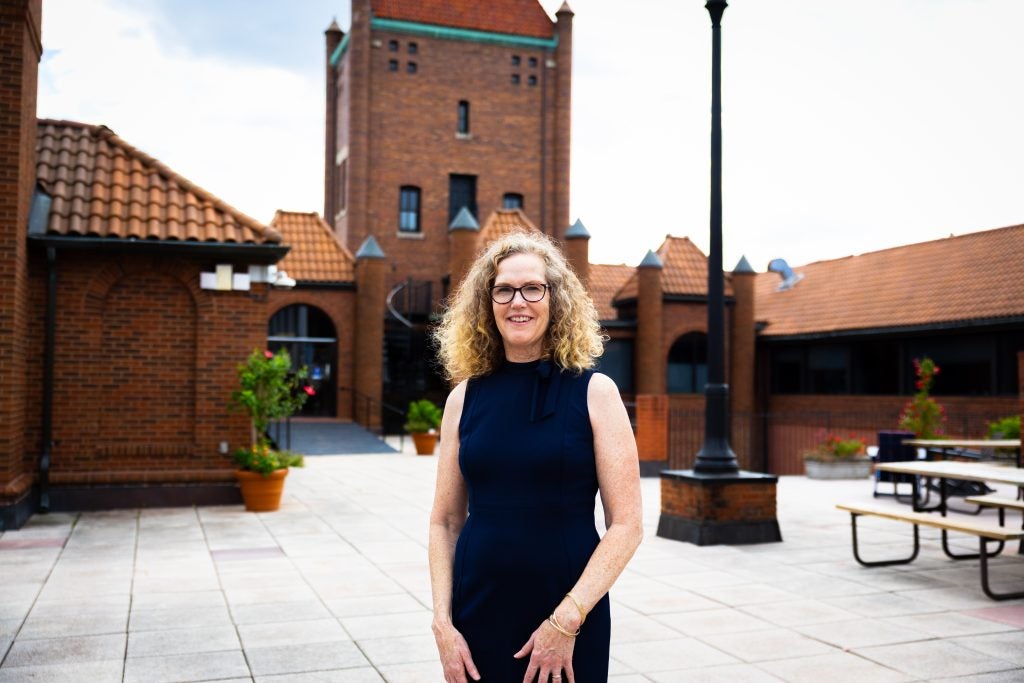
The childhood anecdote that predicted my career: I am the oldest of three sisters who are each a year apart. When I was around 4 years old, I taught my youngest sister how to climb out of her crib instead of picking her up every time she wanted out. I think about that as an early sign that I would go into education — but I’m sure my parents weren’t happy about having three young kids on the go!
What interested me about Georgetown: My Ed.D. dissertation looked at how to teach civic engagement. Every college and university wants to produce good citizens, but how do we do that? What I thought was attractive, in part, about Georgetown were these Georgetown values of ‘people for others’ and that knowledge is meant to be shared and put in practice. That resonated with where my interests were in civic engagement and knowledge being used for community good. 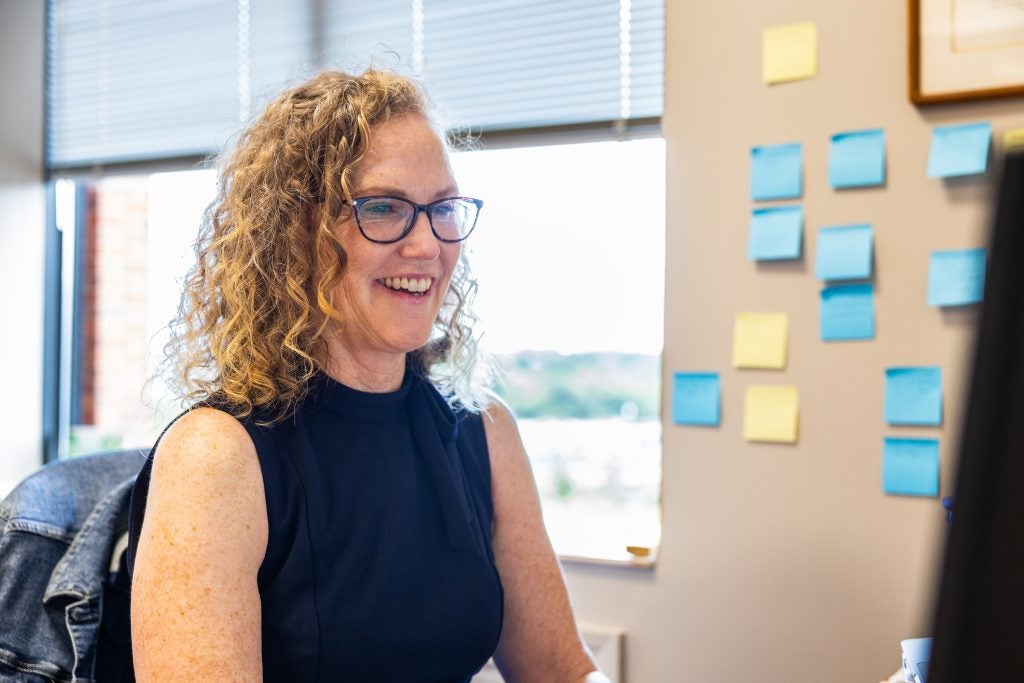
What working at the School of Nursing taught me about supporting grad students: Because this was many students’ first online program, they would underestimate the time commitment. They would also get overwhelmed by the skills shift. Becoming a nurse practitioner and a midwife involves a different knowledge base and a lot of autonomy of care. Also, our students were often parents with really complex lives. My academic advising role wasn’t guiding students in what elective to take, but how to achieve success in their degree while balancing multiple important roles. We talked a lot about how to transition your life, how to give things up and how to study at a graduate level.
Why I moved to Graduate Studies administration: I loved midwifery. I fell in love with the social justice mission, and the faculty over there are so thoughtful about their discipline and I learned so much from them. But I was ready for this position. If you’re in a high student-contact role, you’re probably making a difference in one-to-one interactions, but hopefully as you move up in administration, you’re creating policies and programs that benefit everybody.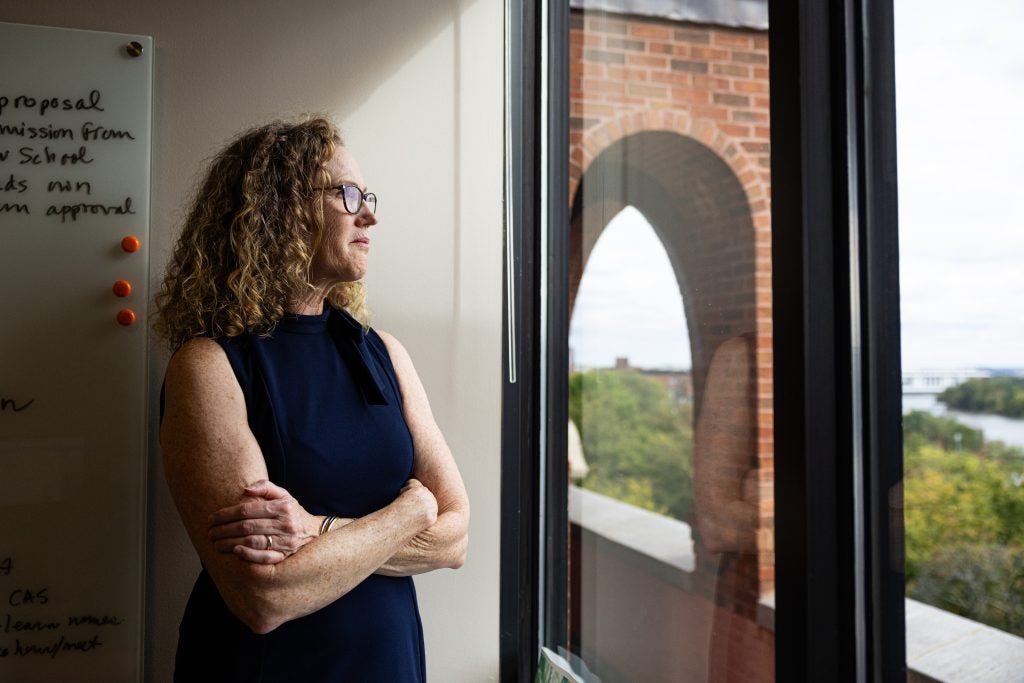
Why I love interdisciplinary studies: You could even trace it back to my dissertation — civic engagement does not occur in one single discipline. For a long time, I’ve been interested in an interdisciplinary approach to learning, because that’s how learning happens in a natural environment. In a course, the purpose is to focus on a subject in a singularity, but applying that knowledge happens in a larger context.
My plans for the Emerging Studies Institute: The Emerging Studies Institute is really an exciting innovation. It’s a smaller unit with expertise to operate outside of some of the constraints of the schools. I keep thinking that we’re kind of like gardeners: We’re going to plant seeds with our partners and keep them in a greenhouse, and then when they’re established, we’re going to put them back in the school’s lot. It’s exciting. Hopefully, it will allow for more creativity and successful, solid launches because of the specificity of having an incubator unit.
My philosophy on supporting students: I continue to hold at the center that cura personalis [care of the whole person]. We have to hold that students have whole lives, in both the great sense and the complicated sense. While we may not know the complexity that students have, I think we need to have good faith and hold some room for that. 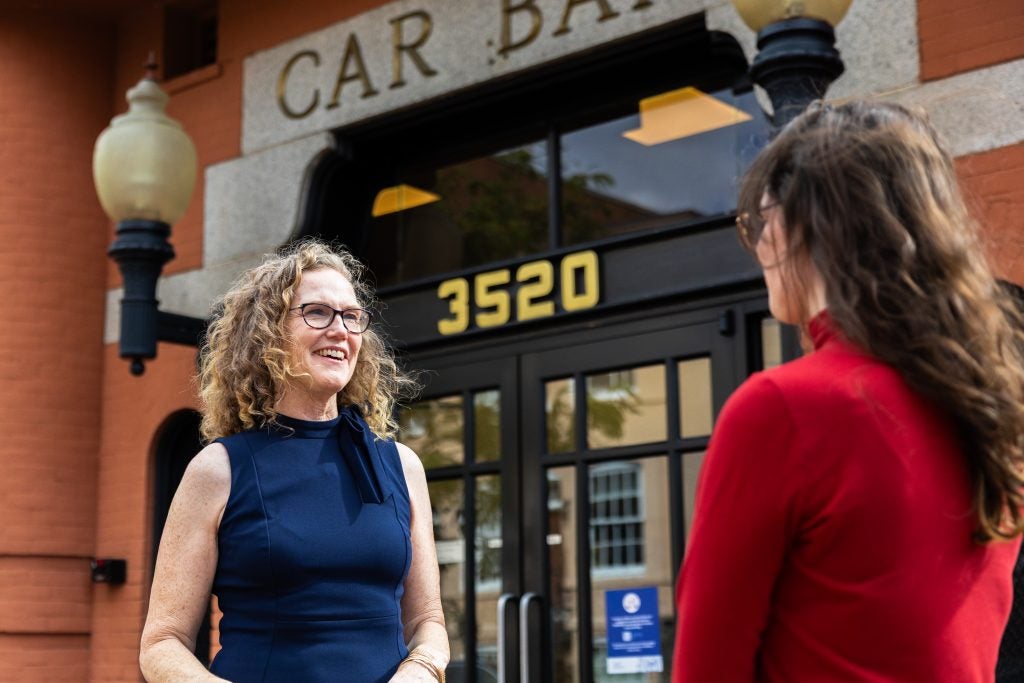
How the Georgetown values motivate me: I earnestly believe this is the most caring place I have ever worked. And I think that we can invite each other to reflect on those values and lead with that kind of, dare I say, love. With the anchor of the Georgetown values, we can take a moment and be like, ‘Can we do this better?’
I’m a lifelong learner: I continue to be curious about tools of evaluation. Is what we do having the impact we think it is, and how can we better achieve our goals? I’m looking to improve my analytical skills to help me make better decisions.

Outside of work, you’ll find me: I see a lot of movies. I recently saw Life of Chuck, and I really, really liked that. That’s an offbeat one. I love the prestige, lean-in television, and also the genre, sci-fi, superhero kind of stuff. I loved Andor and The Bear — if you only watch one episode of The Bear, make it “Forks.”
My family named our dog after a beloved TV character. His name is Appa, like the flying bison in the series Avatar: The Last Airbender. The emergency phrase my family has to get him back if he gets loose is ‘yip-yip,’ which the characters say in the show to make Appa fly.
One word that comes to mind when I think of Georgetown: Purpose – we share a common purpose as a university community, we help students discover and refine their purpose, and when at our best, our actions as staff and faculty are with purpose.
